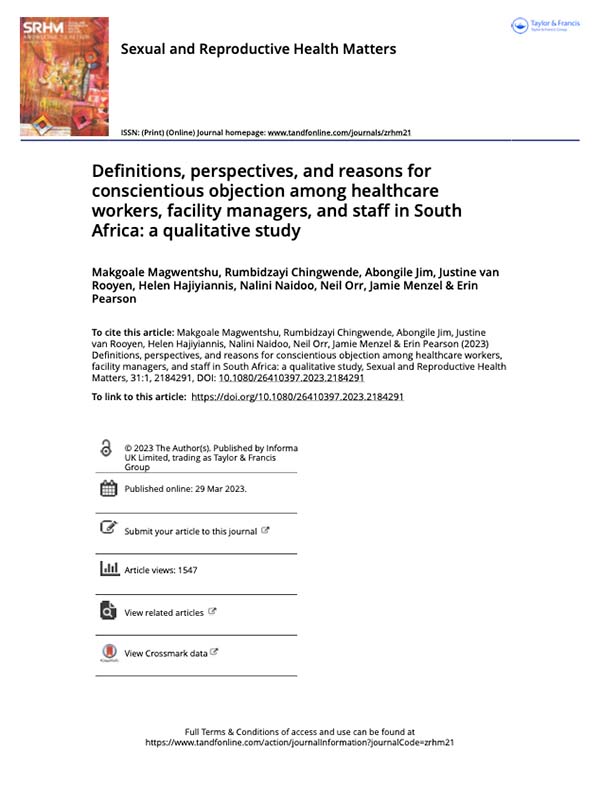Definitions, perspectives, and reasons for conscientious objection among healthcare workers, facility managers, and staff in South Africa: a qualitative study
Publicación
Idioma
Autoría
Resumen
Conscientious objection (CO) on the part of healthcare providers is a growing threat to safe abortion access. In South Africa, evidence suggests that this legal clause may be manipulated as a justification for public-sector healthcare providers to exempt themselves from their duties to provide essential reproductive health services as required by national laws and protocols. This qualitative study improves our understanding of the definitions, perspectives, and use of CO among providers, staff, and facility managers in South Africa, and CO’s effect on public-sector abortion availability. Using 18 focus group discussions and 23 in-depth interviews, we examined CO attitudes and behaviours of staff from health facilities that provide abortion care in Gauteng, Limpopo, KwaZulu-Natal, and Eastern Cape Provinces. We find that CO is invoked for a variety of reasons, some unrelated to the legal basis for objection. There have been progressive shifts in attitudes towards abortion over time, but stigma against women and girls who seek abortion remains substantial among staff at facilities providing abortion. Providers who offer abortion services also report high levels of discrimination and isolation from colleagues. Such factors, combined with operational barriers to offering quality abortion care (such as lack of training support or financial incentives) and lack of clarity on CO definitions and procedures, may incentivise some providers to invoke CO inappropriately. Dissemination of national guidelines on CO should be prioritised to reduce ambiguity, and interventions addressing abortion stigma should be considered for all facility staff to safeguard abortion availability in South Africa. DOI: 10.1080/26410397.2023.2184291

